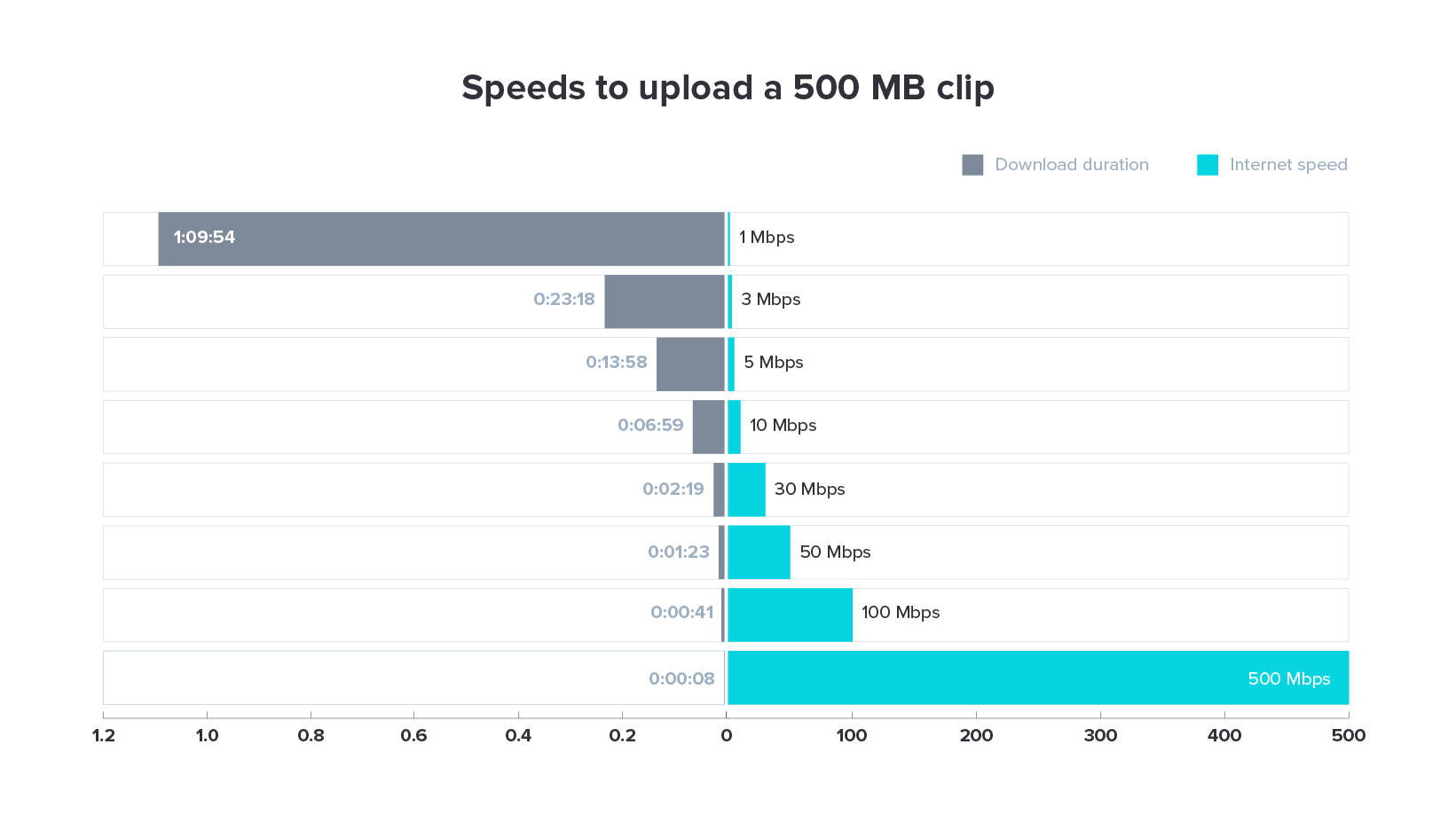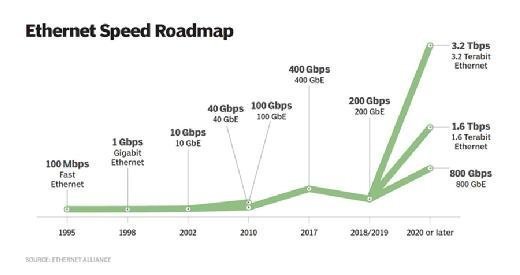A Comprehensive Overview to Measuring Megabits Per Second for Home Usage
A Comprehensive Overview to Measuring Megabits Per Second for Home Usage
Blog Article
How Megabits Per Second Effect Your Online Tasks
The idea of megabits per second (Mbps) plays a crucial function in forming our on the internet experiences. Higher Mbps can enhance efficiency and decrease disturbances, while insufficient rates may cultivate disappointment and ineffectiveness.
Recognizing Megabits Per Second
When taking into consideration web rate, it's vital to understand the concept of megabits per second (Mbps), which offers as a common measurement for information transfer prices. This metric measures just how much information can be sent over a web link in one second, supplying a clear understanding of efficiency capacities - Megabits Per Second. For context, one megabit amounts to one million little bits, and Mbps is typically made use of to express transmission capacity for various on the internet tasks
A greater Mbps shows a quicker internet link, enabling users to carry out jobs such as downloading data, searching internet sites, and participating in on-line video gaming a lot more effectively. As an example, normal surfing calls for around 1-5 Mbps, while streaming high-def video may demand 5-25 Mbps. Recognizing these needs is important for establishing the appropriate internet rate required for details tasks.
Additionally, the number of devices connected to a network can influence total efficiency. Numerous customers streaming, pc gaming, or downloading at the same time can strain readily available bandwidth, resulting in slower speeds - Megabits Per Second. Evaluating personal online practices and requirements is crucial in picking an internet strategy that aligns with one's demands, ensuring a smooth electronic experience
Streaming and Buffering Issues
Streaming high-definition content has become a staple of modern-day on-line entertainment, yet it is often come with by frustrating buffering concerns. These disturbances can substantially diminish the seeing experience, resulting in frustration and potential loss of target market interaction. Buffering occurs when the information transferred from the streaming service is not obtained swiftly sufficient to maintain a smooth playback, frequently as a result of inadequate internet rate gauged in megabits per second (Mbps)

Additionally, real-time streaming can be impacted by network congestion, which occurs when numerous tools share the exact same bandwidth. Subsequently, maximizing link speed and ensuring ample Mbps is crucial for a smooth streaming experience. As streaming services proceed to develop, comprehending the influence of Mbps on buffering problems remains essential for customers looking for undisturbed enjoyment.
Online Video Gaming Efficiency
The effect of internet speed on on-line activities extends past streaming, considerably affecting on the internet pc gaming efficiency. In affordable video gaming, reduced latency and high data transfer are critical for a seamless experience. A rapid connection decreases lag, allowing players to respond quickly to in-game occasions, which can be the difference in between triumph and loss.
Data transfer, gauged in megabits per second (Mbps), plays a crucial role in supporting numerous devices and video gaming platforms all at once. Insufficient transmission capacity can lead to went down links or decreased video game quality, negatively impacting gameplay. As an example, online multiplayer games call for substantial data transfer, specifically during peak gaming hours when many gamers are online.
Busy first-person shooters require higher speeds to keep responsiveness, while turn-based method games may function moderately well on reduced speeds. As online pc gaming proceeds to develop, with enhancing visual integrity and more intricate multiplayer settings, the demand for greater Mbps will just heighten.
Video Conferencing Top Quality
In today's electronic landscape, video conferencing top quality is heavily influenced by net speed, specifically in terms of data transfer and latency. Top notch video calls call for adequate bandwidth to transfer audio and video clip data seamlessly. Normally, a minimum of 1.5 Mbps upload and download speeds is advised for conventional definition video clip, while high-definition video clip conferencing typically requires a minimum of 3 Mbps.
Latency, or the hold-up between sending out and receiving data, likewise plays a crucial function in the customer experience. Higher latency can lead to echo, lag, and disjointed interactions, which can hinder collaboration and involvement throughout conferences.
Furthermore, several individuals in a video clip meeting can strain available data transfer, demanding also greater speeds. Network blockage, frequently created by simultaneous activities like streaming or downloading, can additionally weaken video clip top quality. Thus, for organizations relying on video conferencing for remote collaboration, comprehending the connection between megabits visit the site per general and second communication high quality is necessary for keeping performance and boosting digital communications.
Picking the Right Net Plan
Choosing a proper web plan is important for making certain optimum efficiency in different on the internet activities, especially in settings that require try here high transmission capacity, such as video clip conferencing and online video gaming. Megabits Per Second. When thinking about an internet plan, it is essential to evaluate both the rate and information allocation to match your certain usage needs
For houses with several individuals engaging in synchronised tasks, a plan offering greater megabits per second (Mbps) is recommended. Typically, a minimum of 25 Mbps appropriates for typical streaming and surfing, while plans exceeding 100 Mbps are better for more intensive jobs. Additionally, consider the nature of your online tasks; video clip conferencing calls for at the very least 1.5 Mbps post speed, while on-line video gaming might need a reduced latency yet regular connection.
Endless data strategies can prevent strangling and disturbances, especially if heavy use is prepared for. By thoughtfully choosing an internet plan customized to your needs, you can enhance your online experience, making certain smooth, uninterrupted access to your favored tasks.
Conclusion
In verdict, the relevance of megabits per second (Mbps) in forming online tasks can not be overstated. A thorough understanding of specific or home Mbps requirements is crucial for picking a suitable net plan that appropriately supports varied online activities and customer demands.

Typically, a minimum of 25 Mbps is ideal for standard streaming and surfing, while plans surpassing 100 Mbps are more suitable for more intensive jobs. In addition, consider the nature of your online activities; video conferencing requires at the very least 1.5 Mbps publish speed, while online pc gaming may need a reduced latency however constant connection.
Report this page